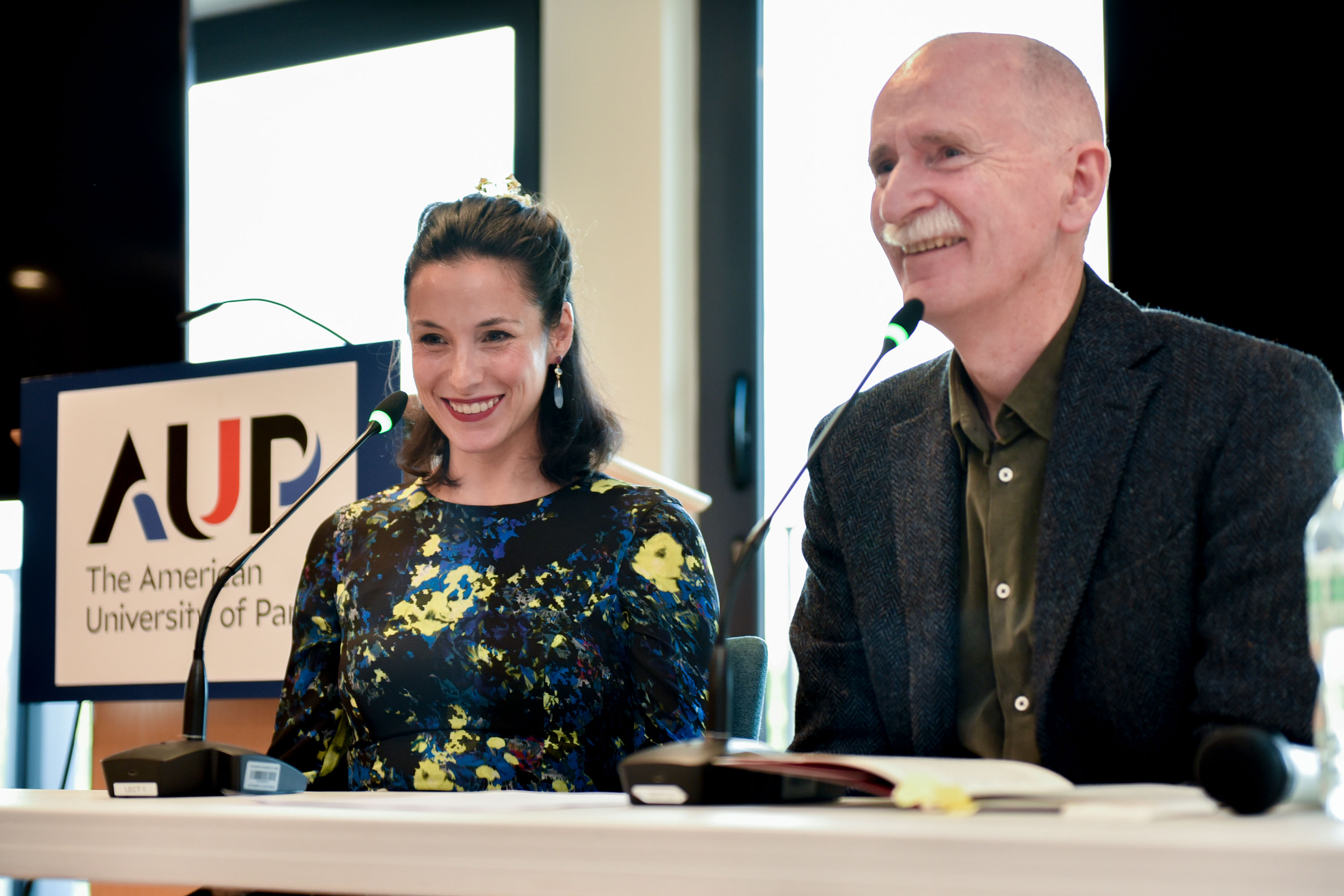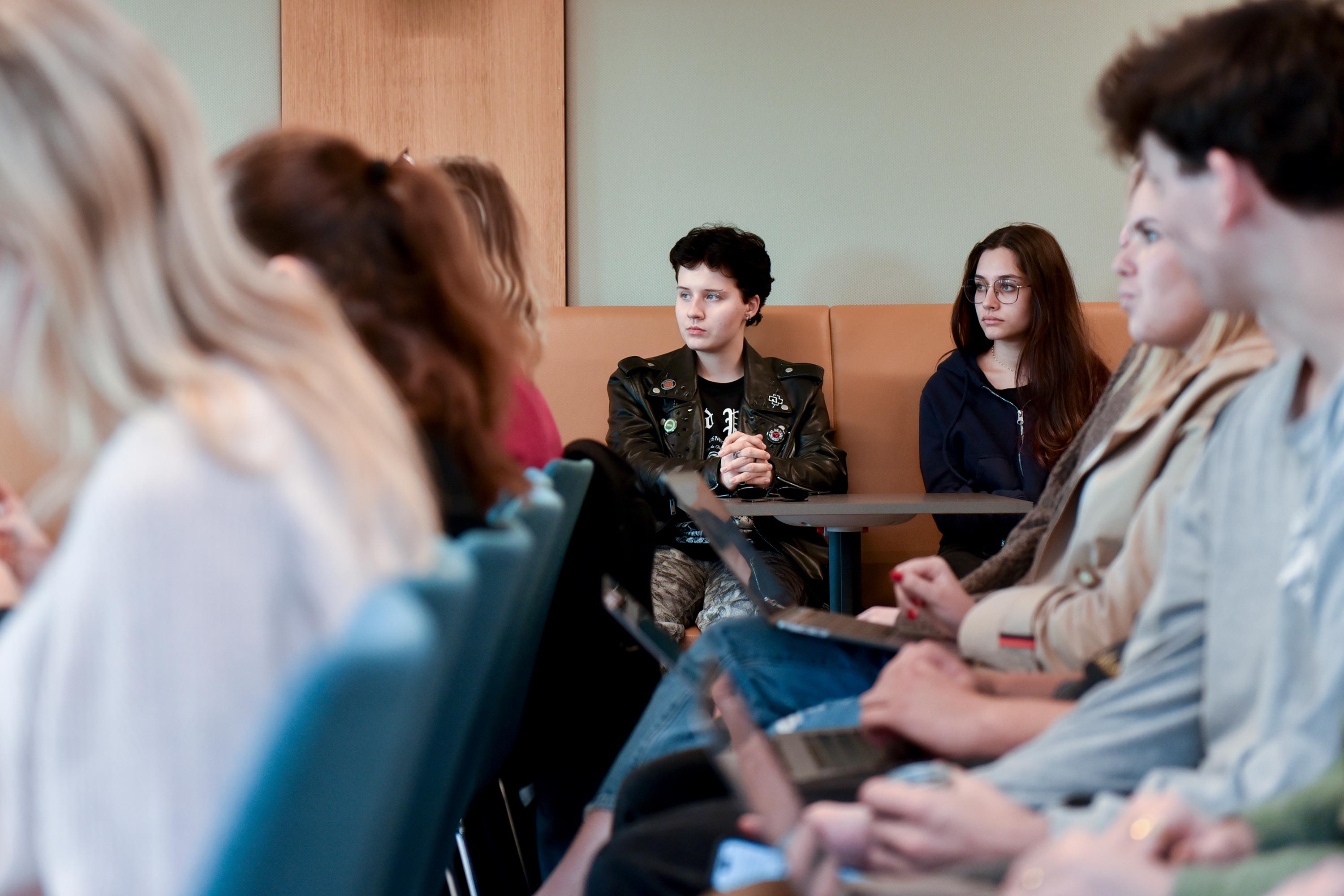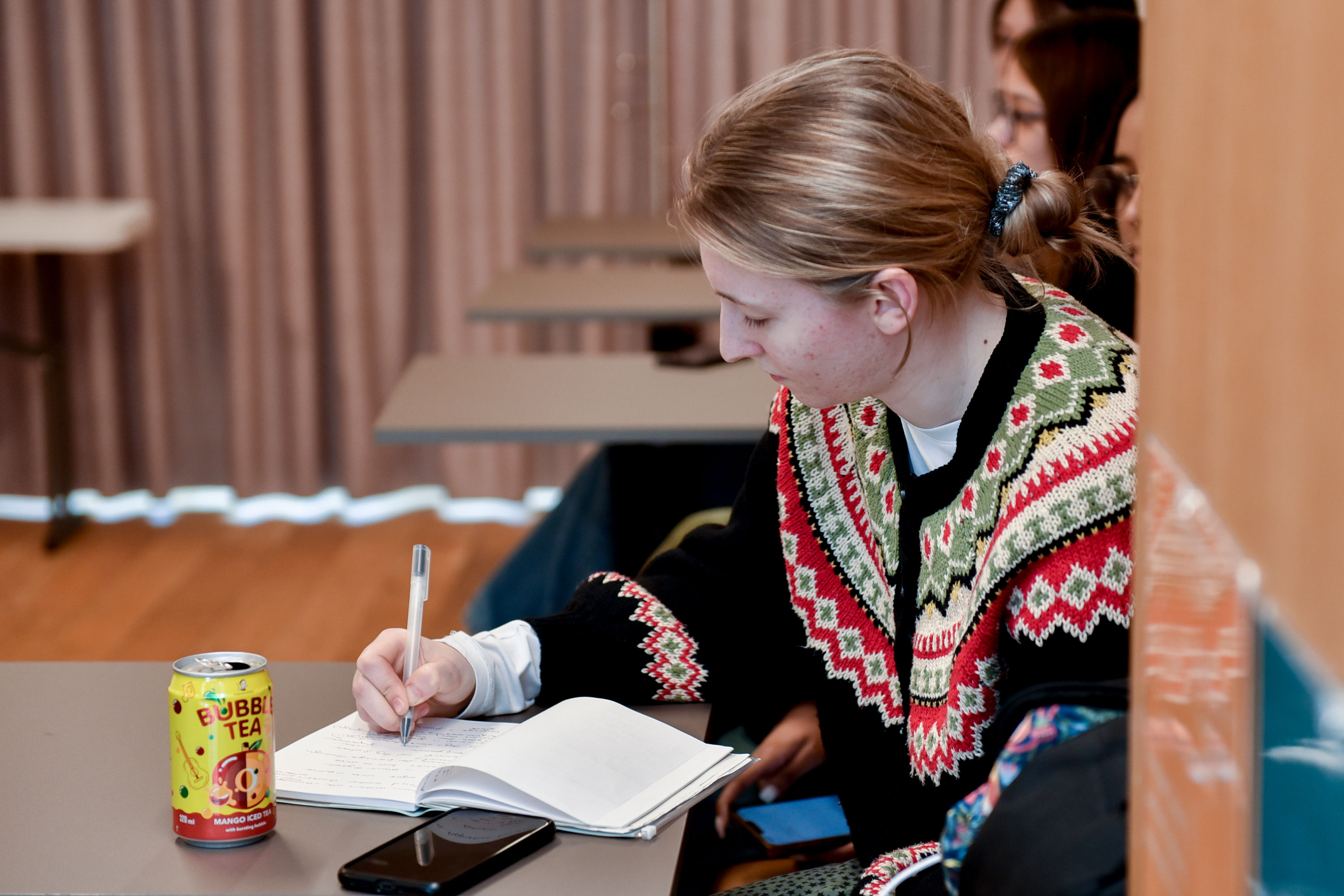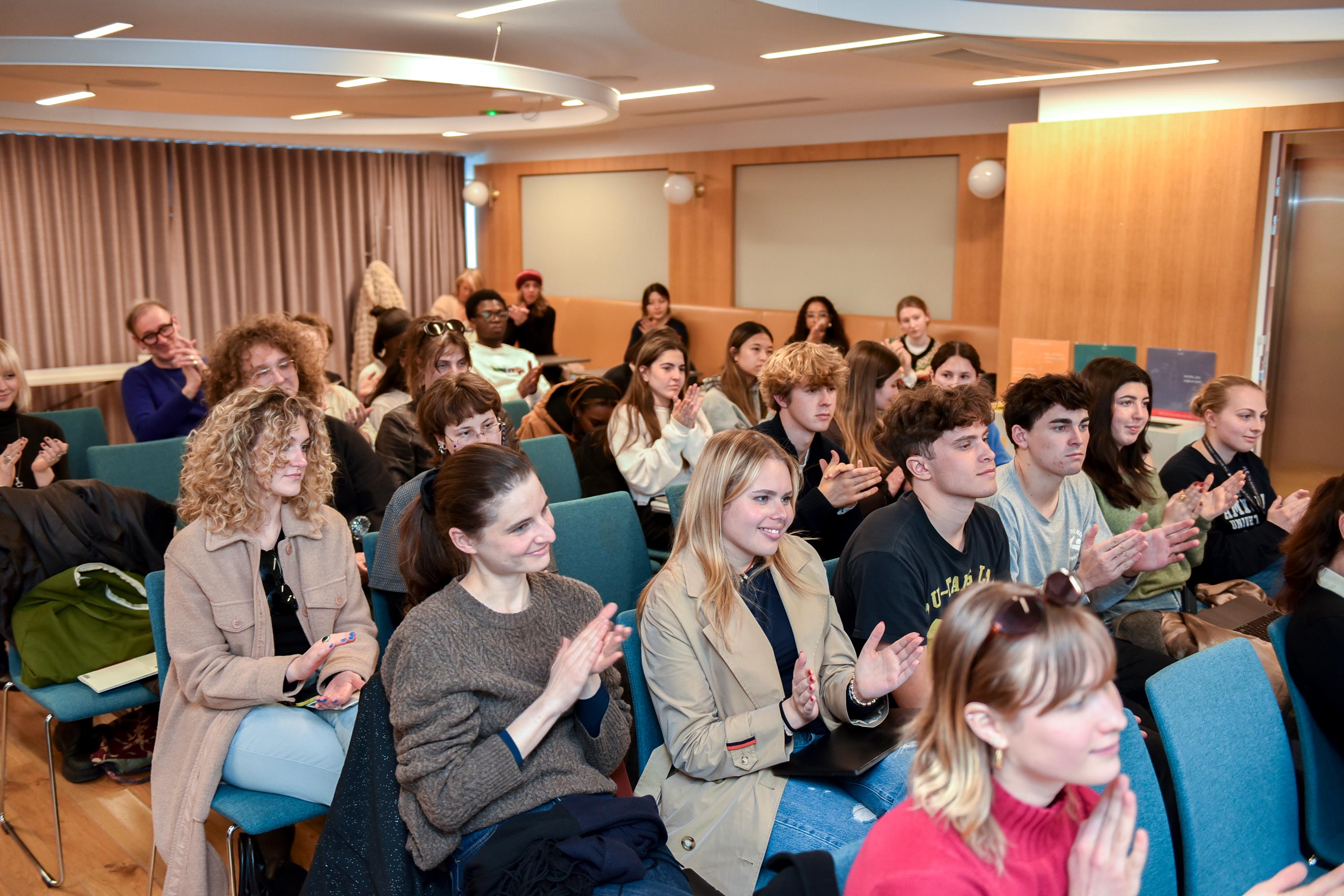
- About AUP
- History of AUP
- Mission & Core Values
- Vision and Leadership
- AUP Recognition
- Alumni Success
- Campus Development
- Arts at AUP
- Policies & Guidelines
- Academics
- Undergraduate
- Graduate Programs
- MA in Diplomacy and International Law
- MA in Global Communications
- MSc in Human Rights and Data Science
- MA in International Affairs
- MA in International Affairs, Conflict Resolution, and Civil Society Development
- MSc in International Management
- MSc in Strategic Brand Management
- Find Your Thesis Advisor
- Previous Programs
- Cultural Program
- Faculty
- Summer School
- Research Centers
- The Center for Critical Democracy Studies
- Upcoming Events
- Research Projects
- Fellows’ Publications
- Publishing
- Curriculum
- Community
- Partnerships
- Visiting Scholars
- CCDS Highlights
- Atelier de Théorie Politique – Paris
- Critical Theory 101: Future Directions and New Challenges
- Martti Koskenniemi on “The Law of International Society: A Road not Taken”
- Academic Freedom Symposium
- Tocqueville Colloque 2023
- Violent Turns Conference
- Degenerations of Democracy
- DEMOS21 Inaugural Event
- What Demos for the 21st Century?
- The Paris Centennial Conference
- Justice Stephen Breyer
- Civic Jazz - The Launch of the Center
- Past Events
- FR
- The Center for Writers and Translators
- The George and Irina Schaeffer Center for the Study of Genocide, Human Rights and Conflict Prevention
- The Joy and Edward Frieman Environmental Science Center
- The Center for Media, Communication & Global Change
- The Center for Critical Democracy Studies
- Departments
- Academic Resources
- Academic Affairs
- Academic Calendar
- Academic Resource Center
- Library
- Registrar's Office
- Teaching and Learning Center
- Accessibility & Accommodation Services
- AI@AUP: A Campus-Level Initiative
- Quai D'Orsay Learning Commons
- Paris as Classroom
- ACE
- Admissions
- Student Life
- Campus
- Student Leadership & Involvement
- Paris
- Support Services
- Student Life Help Desk
- Student Accounting Services
- Student Immigration Services
- Student Grievance Procedure
- Diversity and Inclusion
- Health & Well-being
- Digital Student Handbook
- News
- Events
- AUP Giving
- Housing Offer for 2025-2026
- IT Services
- Alumni
- About AUP
- History of AUP
- Mission & Core Values
- Vision and Leadership
- AUP Recognition
- Alumni Success
- Campus Development
- Arts at AUP
- Policies & Guidelines
- Academics
- Undergraduate
- Graduate Programs
- MA in Diplomacy and International Law
- MA in Global Communications
- MSc in Human Rights and Data Science
- MA in International Affairs
- MA in International Affairs, Conflict Resolution, and Civil Society Development
- MSc in International Management
- MSc in Strategic Brand Management
- Find Your Thesis Advisor
- Previous Programs
- Cultural Program
- Faculty
- Summer School
- Research Centers
- The Center for Critical Democracy Studies
- Upcoming Events
- Research Projects
- Fellows’ Publications
- Publishing
- Curriculum
- Community
- Partnerships
- Visiting Scholars
- CCDS Highlights
- Atelier de Théorie Politique – Paris
- Critical Theory 101: Future Directions and New Challenges
- Martti Koskenniemi on “The Law of International Society: A Road not Taken”
- Academic Freedom Symposium
- Tocqueville Colloque 2023
- Violent Turns Conference
- Degenerations of Democracy
- DEMOS21 Inaugural Event
- What Demos for the 21st Century?
- The Paris Centennial Conference
- Justice Stephen Breyer
- Civic Jazz - The Launch of the Center
- Past Events
- FR
- The Center for Writers and Translators
- The George and Irina Schaeffer Center for the Study of Genocide, Human Rights and Conflict Prevention
- The Joy and Edward Frieman Environmental Science Center
- The Center for Media, Communication & Global Change
- The Center for Critical Democracy Studies
- Departments
- Academic Resources
- Academic Affairs
- Academic Calendar
- Academic Resource Center
- Library
- Registrar's Office
- Teaching and Learning Center
- Accessibility & Accommodation Services
- AI@AUP: A Campus-Level Initiative
- Quai D'Orsay Learning Commons
- Paris as Classroom
- ACE
- Admissions
- Student Life
- Campus
- Student Leadership & Involvement
- Paris
- Support Services
- Student Life Help Desk
- Student Accounting Services
- Student Immigration Services
- Student Grievance Procedure
- Diversity and Inclusion
- Health & Well-being
- Digital Student Handbook
- News
- Events
- AUP Giving
- Housing Offer for 2025-2026
- IT Services
- Alumni
Related Links
Academics
Author Andrea Applebee joins illustrious writers published in the 35th Edition of AUP’s Cahiers Series
Home>News>
Every day, American poet, editor and scholar Andrea Applebee navigates the cobblestone streets of Athens, which has been her home for eight years. Rocky, winding, and boisterous with people and motorbikes, the ancient routes twist and turn through both modernity and the tumultuous history of the city. With every step, Applebee traverses not just the cityscape, but a more personal terrain: one of adjustment to new culture and language, her complex past, and near-total blindness. Her evolving identity demands the constant creation of new alphabets for self-discovery and translation.
Applebee finds her way through these challenges and pleasures with the help of her guide dog, support from her community, and her writing. This includes her book Mercy Athena, the 35th book in the Cahiers Series, published by AUP’s Center for Writers and Translators in association with Sylph Editions. In April, students had the opportunity to connect with Andrea at a launch event hosted by the Center to celebrate her cahier.
Reflective of the Center’s mission and the multicultural environment of AUP, the Cahiers Series explores intersections between writing and translation. Daniel Gunn, Distinguished AUP Professor of Comparative Literature and Founder and Director of the Center, spearheads and edits the publication. He describes the Cahiers as an unconventional blend of writing genres that “work more like a mosaic than a single narrative. They can have a personal, academic, or poetic side.”
Each volume also braids in images by a visual artist–in the case of Mercy Athena, Scottish painter Lorna McIntosh–which Gunn calls the “parallel visual text.” The result is a series of exquisite, hand-stitched books and intentionally physical art objects. Since 2007, the Center has produced 39 cahiers (the 35th, Applebee’s, was delayed due to the pandemic), from emerging and internationally renowned writers including two Nobel Prize winners, spanning six continents and various writing forms including poetry, novels, and prose.
Applebee’s writing has taken numerous shapes throughout her career. Originally focused on nonfiction, her graduate advisors at the University of Pittsburgh encouraged her to explore other forms, including poetry. She found a language and community that felt natural. “I didn't know how experimental and wild and powerful it could be,” she says. “I felt like I could belong.” Applebee has since published two books of poetry: Aletheia (Black Square Editions), and Anemones (Magra Books), with another in the works.
Mercy Athena takes its name from Applebee’s former guide dog, a Black Labrador who plays a key role in translating the writer’s experiences in the book, just as she did in real life. Weaving Mercy’s support and companionship throughout the nonlinear text, Applebee depicts “a very intimate physical and cognitive bond—both pragmatic and emotional,” she says.
The cahier traces her journey from a difficult, working-class upbringing in South Carolina to her present-day life in Greece. Applebee has walked much of her path alongside her identical twin sister who shares the same degenerative retina disorder. “She’s my biggest pillar of strength,” Applebee says. She recounts how a college study-abroad trip in Greece sparked her curiosity about the country, and, in a series of vignettes or “X-rays,” excavates the abusive long-term relationship that finally compelled her to move there.
The cahier captures life in Athens as a new level of discovery. In a city with few accommodations for blind people, Applebee details her progression through five apartments in three years and a multifaceted encounter with a new language, Greek, culminating in the translation of her poetry into the language at a refugee center. She says, “It's an incredibly flexible language with a plastic syntax. It’s precise and rich. I feel like I'm operating in a different dimension when I think in Greek.” Also acquiring new language tools, given her blindness, in recent years she’s also adjusted to using the text-to-speech method to write.
Gunn and Applebee met through a mutual colleague, and Gunn felt a resonance between the themes of the Cahiers Series and Andrea’s work and life: “the notion of translation, the dog translating space into sensation; translating herself from an American person to a Greek person.” Inviting her to collaborate on a cahier felt organic, he explains. For Applebee, her experiences in Greece “felt like a natural entry point. I was ready to take stock of how I crash-landed,” she says. With her fluidity across genres, she also appreciated the series’ hybrid format. “It was an invitation back into prose, and a learning experience–starting to build the alphabet of narrative.”
Applebee is currently navigating a new partnership with her guide dog Alex. She loves boxing, swimming in the Greek Islands, and spending time with friends. While continuing to write poetry, she is also working on a book of prose that expands on Mercy Athena. She feels ready to explore her continued journey in Athens and her path to Greek residency up to this point. “Writing is always such an amazing way to do that,” she adds.



